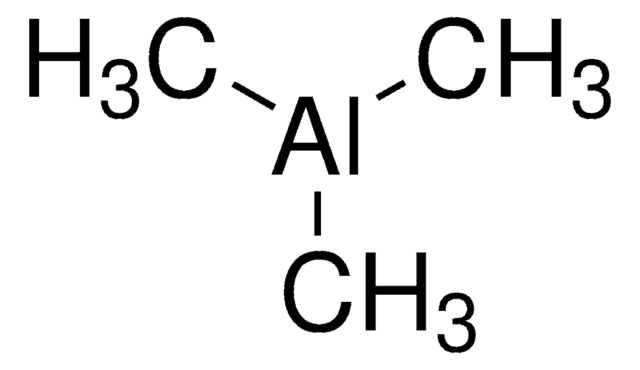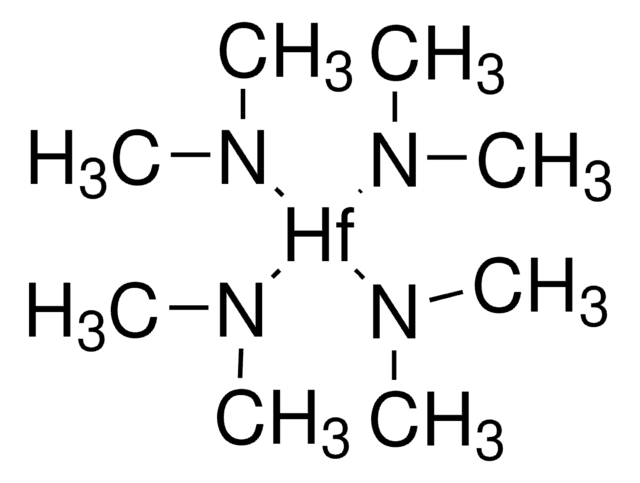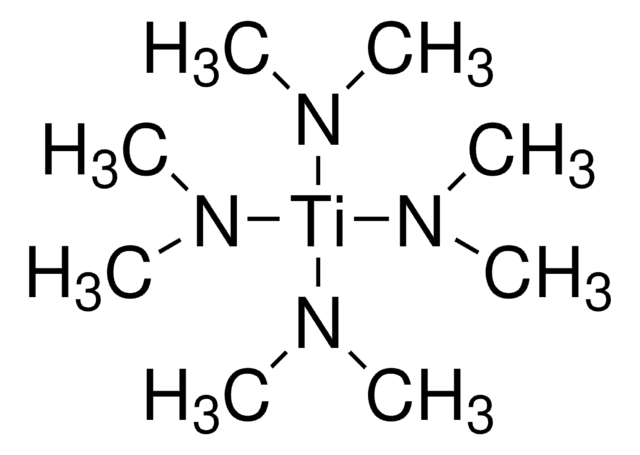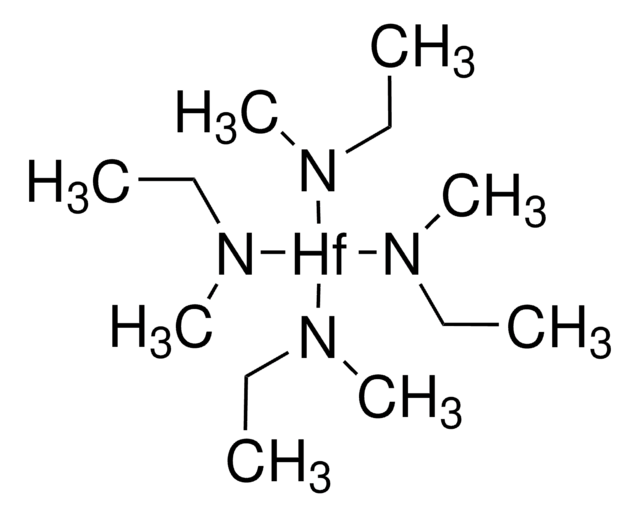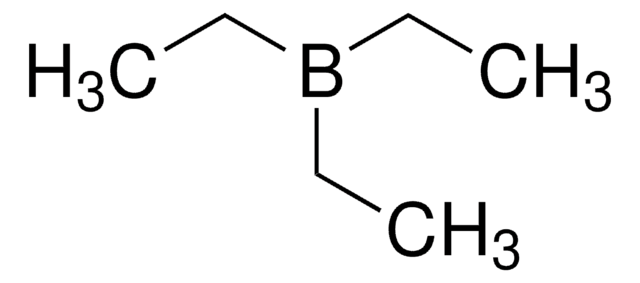668729
Diethylzinc
packaged for use in deposition systems
Synonym(s):
DEZn, Et2Zn, DEZ, Zincdiethyl
About This Item
Recommended Products
Quality Level
form
liquid
refractive index
n20/D 1.498 (lit.)
bp
117 °C (lit.)
mp
−28 °C (lit.)
density
1.205 g/mL at 25 °C (lit.)
SMILES string
CC[Zn]CC
InChI
1S/2C2H5.Zn/c2*1-2;/h2*1H2,2H3;
InChI key
HQWPLXHWEZZGKY-UHFFFAOYSA-N
Looking for similar products? Visit Product Comparison Guide
Related Categories
General description
Application
Signal Word
Danger
Hazard Statements
Precautionary Statements
Hazard Classifications
Aquatic Acute 1 - Aquatic Chronic 1 - Eye Dam. 1 - Pyr. Liq. 1 - Skin Corr. 1B - Water-react 1
Supplementary Hazards
Storage Class Code
4.2 - Pyrophoric and self-heating hazardous materials
WGK
WGK 3
Flash Point(F)
Not applicable
Flash Point(C)
Not applicable
Personal Protective Equipment
Choose from one of the most recent versions:
Already Own This Product?
Find documentation for the products that you have recently purchased in the Document Library.
Customers Also Viewed
Articles
Atomic layer deposition (ALD) techniques have emerged in the last ten years to meet various needs including semiconductor device miniaturization, conformal deposition on porous structures and coating of nanoparticles. ALD is based on two sequential self-limiting surface reactions.
Atomic Layer Deposition (ALD) is a coating technology that allows perfectly conformal deposition onto complex 3D surfaces. The reason for this uniform coating lies in the saturative chemisorption of sequential cycles of precursor vapors.
Since the demonstration of the first practical solar cell 60 years ago, research on novel materials, improved solar cell design and structure, and innovative manufacturing processes have all contributed to a continuous increase in the efficiency of photovoltaic (PV) devices.
Nanomaterials are considered a route to the innovations required for large-scale implementation of renewable energy technologies in society to make our life sustainable.
Our team of scientists has experience in all areas of research including Life Science, Material Science, Chemical Synthesis, Chromatography, Analytical and many others.
Contact Technical Service
